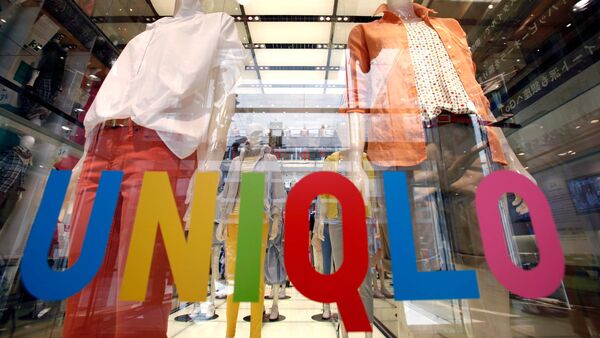Uniqlo is a success story of Japan’s storied industrial manufacturing prowess. The label, launched in 1949, enjoys a reputation for simplicity. In just two years in the 1990s it created a new market in Japan by popularising fleeces that had been until then exorbitantly priced and unfashionable – bought mainly by mountain climbers and trekkers. Uniqlo launched a line in 50 colours at an affordable price of less than $20. In the next 12 months it sold more than two million fleeces – or one to every third person in Japan.
Now the clothing brand is looking to capture markets outside China, where sales have been lacklustre since covid-19 with no sign of picking up any time soon.
In Asia, Uniqlo’s sales outside Japan and China rose by more than 70% in the six months to February over the same period in the previous year. Its operating profits in the same period were up 48%. Fast Retailing, the label’s parent company, is one of Japan’s 10 largest listed companies.
Uniqlo aims to become the best-selling retailer in India, media reports have quoted Fast Retailing’s founder and billionaire Tadashi Yanai as saying. As with Apple, expanding in India is a way for Uniqlo to reduce the risk of increased investments in China and to capitalise on the promise of the consumption market here. Media reports suggest that Fast Retailing is planning to manufacture more in India, and now also for the Indian market. So far, it manufactures here exclusively for exports.
At last count, Uniqlo had 227 factories in China, 54 in Vietnam, 33 in Bangladesh, 13 in Indonesia and 16 in India, there is tremendous scope for it to expand in India. News reports say the company has lined up 20 production partners for the planned expansion of its manufacturing presence here (it operates through outsourced manufacturing rather than its own factories).
This planned expansion is an opportunity India must seize to showcase its promise of globally competitive garment manufacturing and position it as the preferred destination for factories of global clothing manufacturing giants.
Clothing manufacturing is a traditionally labour-intensive industry but like other Japanese industrial giants, Uniqlo is increasingly using automation and artificial intelligence in its factories in Japan to cope with the country’s ageing population. Its warehouses in Japan are manned by robots, replacing the human workforce in some cases by up to 90%. The resultant savings have been ploughed back to raise salaries of employees, especially as the country’s political leadership has called upon businesses to raise stagnant wages. Uniqlo’s global supply chains haven’t remained untouched by its fast-paced adoption of automation.
India’s demographics, however, remain favourable. If the country’s consumption market appeals to Uniqlo, its manufacturing plans could be a good fit for India’s economic ambitions, especially if they could help increase the supply of jobs for millions of young, low-skill Indians.
For India, achieving sustainable economic growth will depend on whether it can create jobs for the bulk of its rapidly growing workforce. Garment manufacturing could easily absorb low-skill young Indians in big numbers, something the production of high-tech items such as in semiconductors and iPhones can’t.
Uniqlo should be given the same priority under ‘Make In India’ as Apple. While both are high-profile companies, Apple’s shift here helps reduce India’s dependence on imported gadgets, Uniqlo’s will create jobs en masse.
The union government and states should thus do everything in their power to facilitate Uniqlo’s plans. They must offer India’s labour abundance as an advantage to global clothing brands while facilitating the creation of jobs in a way that ensures decent minimum wages and minimum red tape. This will help create a virtuous cycle of expanding domestic consumption and investment.
Download The Mint News App to get Daily Market Updates.
More
Less
Updated: 30 Jun 2023, 04:26 PM IST
#India #roll #red #carpet #Uniqlo
